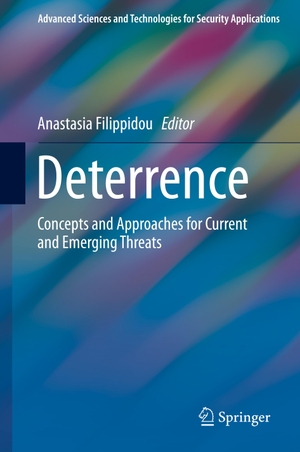
Deterrence
- Springer International Publishing
- 2020
- Gebunden
- 208 Seiten
- ISBN 9783030293666
Through the examination of different themes and subjects the book provides an in depth analysis of the concept of deterrence and its utility in dealing effectively with current threats. Although the concept of deterrence precedes the Cold War, in modern times and in its traditional form deterrence is seen as the product of the Cold War, which transformed 'narrow' deterrence approaches into widespread orthodoxy. Increasingly however emerging threats and challenges call into question the traditional concept of deterrence. There are many elements that challenge the concept of deterrence and its effectiveness. For instance it is not just that the concept can be ambiguous and broad, but
Mehr
Weniger
zzgl. Versand
in Kürze